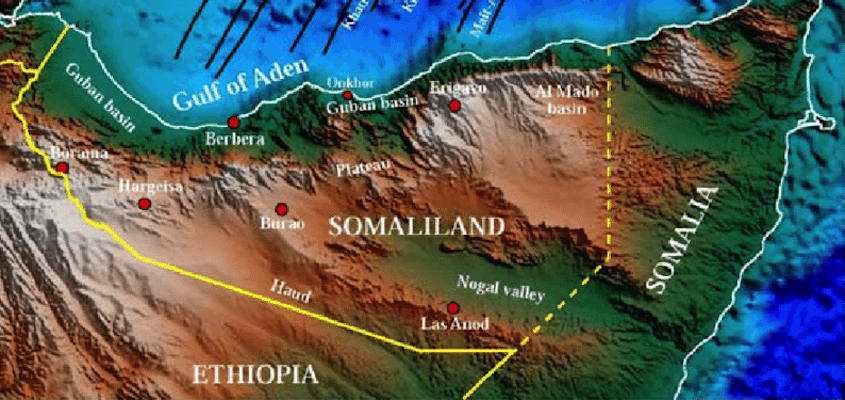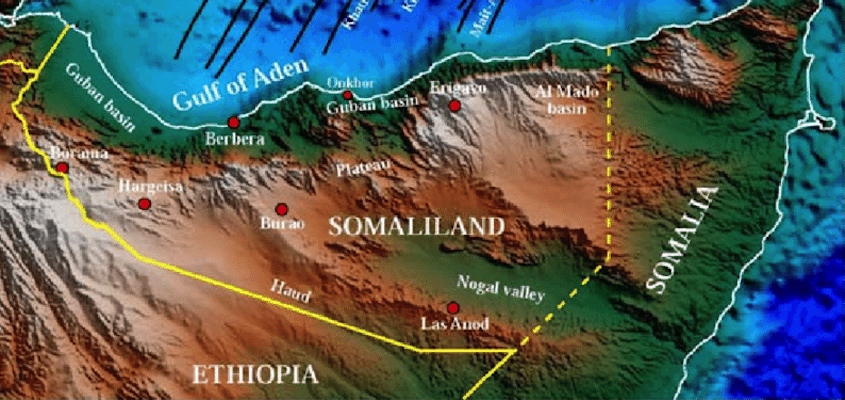
An MOU pairing Ethiopia’s Red Sea ambitions with Somaliland’s secessionist aspirations heightens tensions in the Horn of Africa.
The world’s eyes are now on the geostrategic Red Sea waterways where Yemen’s Ansar Allah fighters have stopped Israeli and Israel-bound ships from passing. Other regional tensions have come into play since Ethiopia signed a Memorandum of Understanding (MOU) with Somaliland, a secessionist state within Somalia that has claimed its independence since 1991. Given the geostrategic importance of the Red Sea, the US/EU/NATO are no doubt involved behind the scenes.
I spoke to Somali Kenyan scholar Abdiwahab Sheikh Abdisamad about Red Sea politics and the MOU.
ANN GARRISON: The term “Red Sea” has become a form of shorthand for a region that actually includes the Gulf of Aden and even the Arabian Sea, because ships must pass through these waters to pass in and out of the Bab el-Mandeb Strait that leads to the Red Sea and the Suez Canal. One might call it “the Red Sea region” or “Red Sea waterways,” but in common parlance it’s all “the Red Sea.” Is that correct?
ABDIWAHAB SHEIKH ABDISAMAD: That is correct.
AG: What is the Memorandum of Understanding (MOU) between Ethiopia and the secessionist state of Somaliland, and why has it stirred so much anger in Somalia?
ASA: The MOU between Ethiopia and Somaliland was signed on January 1, 2024. It stated that Somaliland would lease more than 20 kilometers of its Red Sea coastline to Ethiopia around the port city of Lughaya for 50 years. In exchange, Ethiopia would recognize Somaliland as an independent state in the future. The agreement says it’s a lease, but the unwritten terms say that Ethiopia will get full port ownership as well as vast swaths of land in Awdal region leading to the coast.
AG: How do you know what’s actually in the unpublished MOU?
ASA: If you see the website of the Ethiopian foreign ministry you will get the correct one, but some of it’s hidden for security reasons. I have reliable sources within the Ministry of Foreign Affairs of Ethiopia.
AG: Can you tell us more about why the MOU has stirred so much anger and tension?
ASA: Muse Bihi Abdi, the Somaliland president who signed the MOU, is in office on an expired mandate. Last year he also lost more than a third of the land he used to rule to unionist groups who want to rejoin Somalia, and there are more unionists in rebellion.
Ethiopian Prime Minister Abiy Ahmed, in turn, has his own serious problems at home, where he is fighting multiple armed rebel factions. So this was a meeting of two equally desperate men, both acting without a broad or stable mandate.
This MOU has stirred a lot of controversy in Somalia because the secessionist state of Somaliland is still internationally recognized as a state within Somalia. It is not recognized as an independent state, neither by any of the world’s 193 UN member states nor by multilateral institutions like the UN and the African Union.
Somalia’s government strongly opposed the agreement, saying it was conducted without any legal basis and violated the sovereignty, territorial integrity, and political unity of Somalia. Somalia even withdrew its ambassador to Ethiopia.
AG: What would be the consequence if Ethiopia were to recognize Somaliland as a state independent of Somalia?
ASA: That would undermine the security and stability of the entire region. In one scenario, Somalia, Djibouti and Eritrea would sign a mutual defense pact against Ethiopian aggression. In another, Turkey and Somalia would do the same. In a third scenario, Somalia would sign a mutual defense pact with Egypt and invite them to open a military base in Somalia. As you know, Egypt has a longstanding argument with Ethiopia over Nile River waters and the Grand Ethiopian Renaissance Dam.
AG: Can you tell us about Ethiopian Prime Minister Abiy Ahmed’s October 13 speech asserting that Ethiopia has a historic right to the Red Sea coast?
ASA: First and foremost, that speech was Ethiopian Prime Minister Abiy Ahmed’s hallucination. He said that “Ethiopia’s existence as a nation is linked to the Red Sea” and that Ethiopia needs a port on the Red Sea to feed its citizens, but Ethiopia already has the capacity to feed its citizens using its own abundant arable land.
He is following the examples of all imperial Ethiopian rulers before him who sought a way to the sea, and he recklessly threatened to go to war for it.
As we speak Abiy doesn’t even control 70% of his own country, so going to war to gain more territory is a ridiculous idea. Fano, an Amhara militia, are fighting him in Amhara Region, and Oromo militias control most of Oromia Region.
Abiy’s speech understandably upset Somalia, Eritrea and Djibouti because of Ethiopia’s history of invasion, occupation, and destabilization, especially during the recent 27-year rule of the US-backed Tigray People’s Liberation Front (TPLF) between 1991 and 2018. The TPLF invaded and destabilized Somalia in 2006, and it fought a bitter war with Eritrea off and on from 1998 to 2018. In 2020 it fired missiles on Eritrea, drawing it into the Ethiopian civil war that came to be called the Tigray War.
Abiy Ahmed later said that Ethiopia has no intention of invading or asserting its interests through war or aggression, but his speech left deep distrust among Ethiopia’s neighbors, especially Somalia and Eritrea, who are all too aware of Ethiopia’s centuries-old ambitions to dominate the Red Sea.
AG: Does Ethiopia have naval ships without a port of their own in the Red Sea?
ASA: Yes, they have naval ships in the Djibouti Port. It’s an open secret.
AG: There are Ethiopian troops in Somalia to fight al-Shabaab, while at the same time the Somali president says he is willing to defend the nation against Ethiopia. Do you think the Ethiopian troops will be asked to leave?
ASA: These troops are present due to a bilateral agreement, and if they contravene the agreement, it must be suspended and they must be ordered to undertake an immediate withdrawal from Somalia.
AG: These are hugely geostrategic waterways, as is evidenced by all the foreign naval presence and the way that Yemen’s Ansar Allah movement has thrown a wrench in international trade to stop Israel’s genocide in Gaza. It is therefore impossible to imagine that the US/EU/NATO aren’t involved in the background. What role do you see the US/EU/NATO playing?
ASA: US and EU have claimed to support Somalia’s territorial integrity, but I believe their hands are in all of this. I think they are glad to see Ethiopia reigniting tension throughout the region.
Ethiopian officials have already admitted to telling the Americans their plans beforehand, so why didn’t the Americans stop them from this reckless political miscalculation? One can only conclude that they hoped to see what has happened or worse. Tension and chaos facilitate domination.
France has trained 30,000 sailors for Ethiopia even though it has no sea, so what was their motivation? They are supporting Ethiopia behind the scenes, although they claim not to.
In addition to this all, the collective West supports Israel in its brutal campaign of mass killing & destruction in Gaza to protect the interests of Israel with no regard to the 24,000+ Gazans killed. They are also longstanding supporters of the war on Yemen, which has also cost thousands of lives.
The Western navies off the coast of Yemen should all go home or Ansar Allah will consider them legitimate targets in their defense of the Palestinian people.
AG: The US exercises great influence in both Somalia and Somaliland. It has 900 troops and a drone bombing operation in Somalia to, we’re told, fight Al-Shabaab, and it has diplomatic and perhaps even military relations with Somaliland. Is it playing one off against the other?”
ASA: Yes, I think so. The US also has great influence in Ethiopia; its Special Envoy to the Horn of Africa, Mike Hammer, flies in and out of Addis Ababa frequently. It could easily have stopped Abiy from his reckless imperial move.
Dr. Abdiwahab Sheikh Abdisamad is a Somali Kenyan and Kenyan citizen. He is the founder and Chief Executive Officer of the Afro-Asia institute for Strategic Studies and a specialist in political science, conflict resolution, and rural development.
Ann Garrison is a Black Agenda Report Contributing Editor based in the San Francisco Bay Area. In 2014, she received the Victoire Ingabire Umuhoza Democracy and Peace Prize for her reporting on conflict in the African Great Lakes region. She can be reached at ann(at)anngarrison.com.
